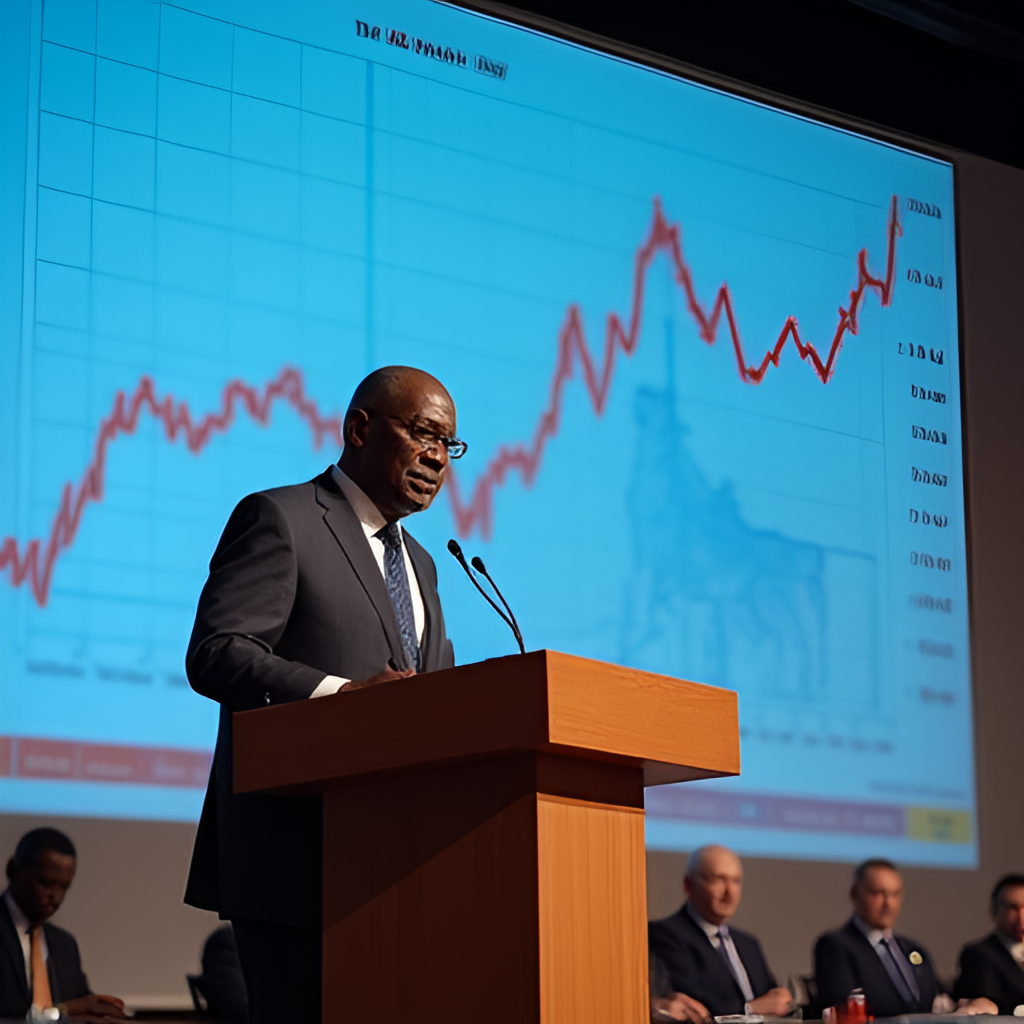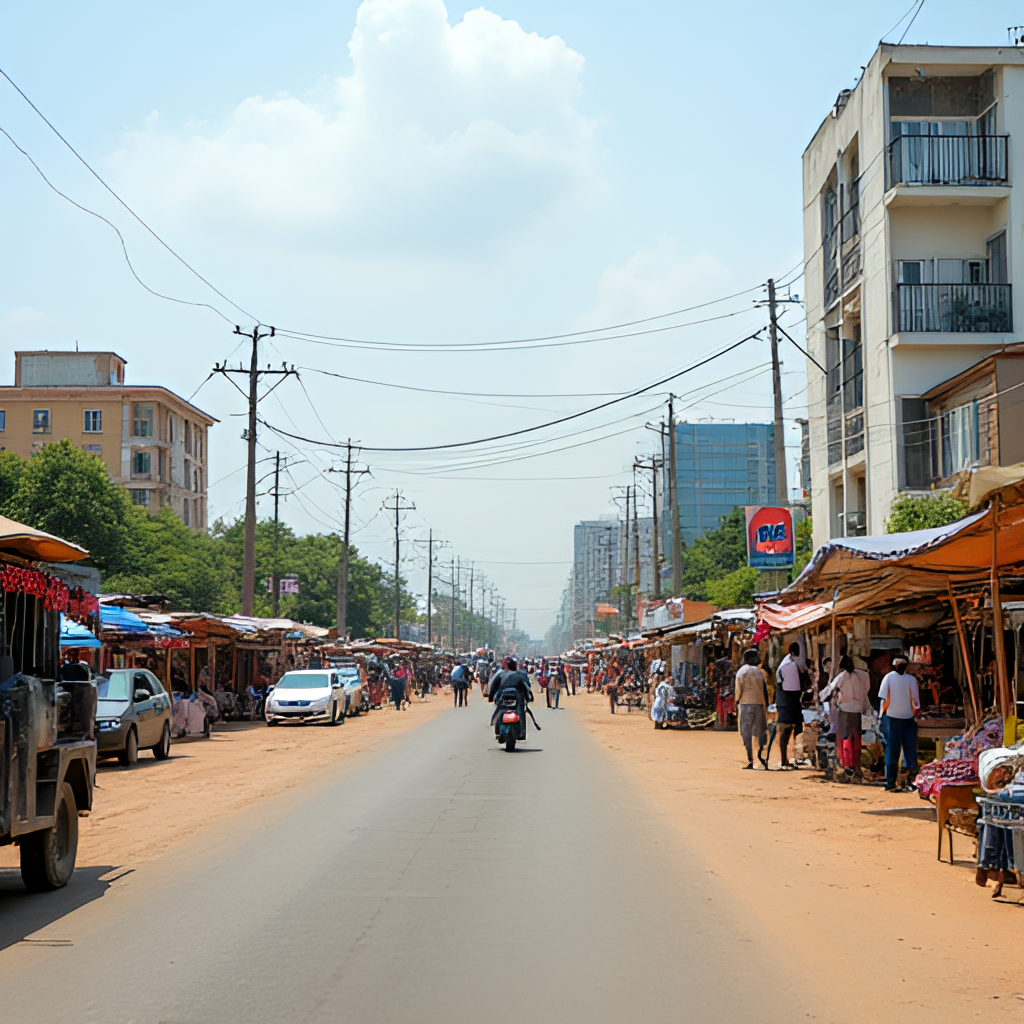President Alassane Ouattara: Leading Côte d’Ivoire Through Change and Challenge
- Understanding President Alassane Ouattara’s Role in Modern Côte d’Ivoire
- Early Life and Economic Foundations
- The Tumultuous Path to the Presidency
- Driving Economic Growth and Development
- Balancing Stability and Political Tensions
- Efforts Towards Social Improvement
- Côte d’Ivoire on the World Stage
- Future Challenges and What Lies Ahead
- The Enduring Impact of President Alassane Ouattara
President Alassane Ouattara has been a pivotal figure in Ivorian politics for decades, navigating the country through significant periods of both turmoil and growth. As someone who has followed West African affairs for years, I find the trajectory of Côte d’Ivoire under his leadership particularly compelling. In this article, we’ll explore the life, career, and impact of President Alassane Ouattara, examining his journey from an internationally respected economist to the helm of a nation striving for stability and prosperity. Understanding his tenure requires looking at the economic reforms he championed, the political hurdles he overcame, and the lasting effects of his policies on the country and its people.
Alassane Ouattara’s path to the presidency was anything but conventional. Born in Dimbokro, Côte d’Ivoire, in 1942, he pursued higher education in the United States, earning a Ph.D. in Economics from the University of Pennsylvania. This academic background set the stage for a distinguished career in international finance before he fully entered the Ivorian political arena. He worked for the International Monetary Fund (IMF) from 1968 to 1973 and later held key positions at the Central Bank of West African States (BCEAO), eventually becoming its Governor. His expertise in economics was highly regarded, leading to his appointment as Prime Minister of Côte d’Ivoire in 1990 under President Félix Houphouët-Boigny, during a time of economic crisis.
My personal view, shaped by observing the region, is that Ouattara’s early career in these major financial institutions provided him with a unique perspective on economic governance that few other Ivorian politicians possessed at the time. It wasn’t just theoretical knowledge; it was hands-on experience at a high level, which would prove crucial later on. After Houphouët-Boigny’s death in 1993, a power struggle ensued, and Ouattara returned to the IMF as Deputy Managing Director until 1999. His return to Ivorian politics marked the beginning of a challenging period, characterized by disputes over his eligibility to run for president based on nationality laws, a deeply divisive issue in Ivorian society.
The Tumultuous Path to the Presidency
The years leading up to Alassane Ouattara’s eventual victory in the 2010 presidential election were fraught with political tension and conflict. After taking the helm of the Rally of the Republicans (RDR) party, he faced repeated disqualifications from presidential contests in 1995 and 2000 due to contentious interpretations of the nationality code. This period saw significant political polarization and contributed to the instability that would plague the country.
The 2010 election was a turning point, but not a peaceful one. When the independent electoral commission declared Alassane Ouattara the winner, the incumbent president, Laurent Gbagbo, refused to concede, leading to a violent post-election crisis. This conflict resulted in thousands of deaths and widespread displacement, a tragic chapter in the nation’s history. It was only after a prolonged standoff and international intervention that Ouattara was finally inaugurated as president in May 2011.
One might wonder, how did a country so deeply divided begin to heal? The initial phase of the Ouattara presidency was understandably focused on restoring stability and national cohesion. This involved complex processes of disarmament, reconciliation, and rebuilding state institutions. While significant steps were taken, the legacy of the conflict and the deep-seated political rivalries continue to pose challenges to this day.
Driving Economic Growth and Development
Perhaps the most widely acknowledged aspect of President Alassane Ouattara’s tenure is the remarkable economic turnaround Côte d’Ivoire has experienced under his leadership. Taking office after a period of conflict and economic stagnation, his administration prioritized macroeconomic stability and attracting investment. My colleagues who follow African economies often point to Côte d’Ivoire as a success story in this regard.
Here are some key areas of economic focus and achievement:
- Impressive GDP Growth: From 2012 to 2019, the Ivorian economy averaged an impressive 8.2 percent annual growth. Even with global challenges like the COVID-19 pandemic, growth remained robust, around 6.5 percent per year between 2021 and 2023, with optimistic projections for the future.
- Poverty Reduction: The poverty rate significantly decreased from 55% in 2011 to 39% in 2018, lifting 1.6 million people out of poverty.
- Infrastructure Development: There has been substantial investment in infrastructure, including roads, electricity access (increasing from 34% in 2013 to over 90% in 2024), and healthcare facilities.
- Diversification Efforts: While still a major cocoa producer, the government has pushed for diversification, encouraging local processing of raw materials and growth in sectors like services and industry.
- Improved Business Climate: Reforms have been implemented to modernize the legal framework for business and streamline tax administration to attract foreign and domestic investment.
These statistics paint a picture of significant progress, transforming Côte d’Ivoire into one of Africa’s strongest economies. However, it’s also important to acknowledge that challenges remain, particularly regarding income inequality and ensuring the benefits of growth reach all segments of the population.

This image is a fictional image generated by GlobalTrendHub.
Balancing Stability and Political Tensions
While the economic narrative is largely positive, President Alassane Ouattara’s political legacy is more complex and has been marked by ongoing tensions and controversies. Maintaining political stability after the 2010-2011 crisis was a primary goal, and in many ways, the country has avoided a return to widespread armed conflict.
However, Ouattara’s decision to seek a controversial third term in the 2020 presidential election, following the sudden death of his designated successor, reignited political tensions. Opponents argued that this violated the constitution’s two-term limit, although the Constitutional Council ruled that a change in the constitution in 2016 reset the clock. This decision led to protests and a boycott by a large part of the opposition, resulting in Ouattara’s re-election with a high percentage of the vote but under a reduced turnout.
Critics also point to concerns about the shrinking democratic space and the handling of political opposition figures. While dialogue has occurred, achieving genuine national reconciliation remains a significant task. The upcoming presidential elections in 2025 are already generating anticipation and discussion about the country’s political future.
Efforts Towards Social Improvement
Beyond the headline economic figures, President Ouattara’s government has also focused on improving social indicators and human development. My experience suggests that economic growth needs to be paired with social progress for true national development.
Key social initiatives and outcomes include:
- Healthcare Access: The rate of access to health services increased from 44% in 2012 to 69% in 2019, with investments in health centers and personnel.
- Education: Efforts have been made to improve access to education, though challenges remain in the quality and relevance of schooling for the workforce.
- Gender Empowerment: Initiatives aimed at strengthening women’s rights and legal status have been implemented, including providing loans to women entrepreneurs.
- Job Creation: Millions of jobs were created between 2011 and 2019, with specific programs targeting youth employment.
While these are positive developments, widespread poverty and social inequality persist, particularly in rural areas, highlighting the uneven distribution of the economic gains. Addressing these disparities is crucial for long-term stability and inclusive growth.
Côte d’Ivoire on the World Stage
Under President Alassane Ouattara, Côte d’Ivoire has re-established itself as a key player in West Africa and on the international stage. His background as an economist with extensive experience in international financial institutions has likely facilitated strong relationships with global partners.
Côte d’Ivoire is a member of major regional bodies like ECOWAS and the West African Economic and Monetary Union (UEMOA), playing an active role in regional integration and security efforts. The country has also maintained close ties with France, the former colonial power, though this relationship can sometimes be a subject of debate domestically.
His government has sought to attract foreign direct investment, leveraging the country’s economic stability and growth prospects. Côte d’Ivoire’s economic performance is often cited as a model in the region.

This image is a fictional image generated by GlobalTrendHub.
Future Challenges and What Lies Ahead
Despite the significant progress made under President Alassane Ouattara, Côte d’Ivoire faces several critical challenges moving forward. The political landscape, marked by the controversies surrounding the 2020 election and anticipation for the 2025 polls, remains a key area of focus.
Other significant challenges include:
- Reducing Inequality: Ensuring that economic growth benefits all Ivorians and reduces the gap between the rich and the poor, and between urban and rural areas.
- Strengthening Institutions: Continuing to build robust and independent democratic institutions, including the judiciary and parliament.
- National Reconciliation: Deepening efforts to heal the divisions from past conflicts and foster genuine social cohesion.
- Security: Addressing regional security threats, particularly from extremist groups operating in neighboring countries.
- Youth Employment: Creating enough skilled jobs for a young and growing population.
My hope is that the foundations laid during Ouattara’s presidency, particularly on the economic front, can provide a platform for addressing these complex social and political issues in the coming years. The country’s ability to navigate these challenges will be crucial for its long-term stability and prosperity.
The Enduring Impact of President Alassane Ouattara
Looking back at his extensive career, it’s clear that President Alassane Ouattara has left an indelible mark on Côte d’Ivoire. From his early days as a respected economist to his current role as the nation’s leader, his journey has been intertwined with the country’s own struggles and triumphs. The focus keyphrase, “President Alassane Ouattara,” represents a period of significant economic revival and determined efforts to maintain stability after years of conflict.
While the economic achievements are undeniable, particularly the impressive growth rates and infrastructure development, his presidency has also faced criticism and controversy, especially regarding political openness and the 2020 election. As Côte d’Ivoire looks towards the future, the groundwork laid by President Ouattara provides both opportunities and ongoing challenges. His legacy will undoubtedly be debated for years to come, reflecting the complex reality of leading a nation through post-conflict recovery and into a new era of development.